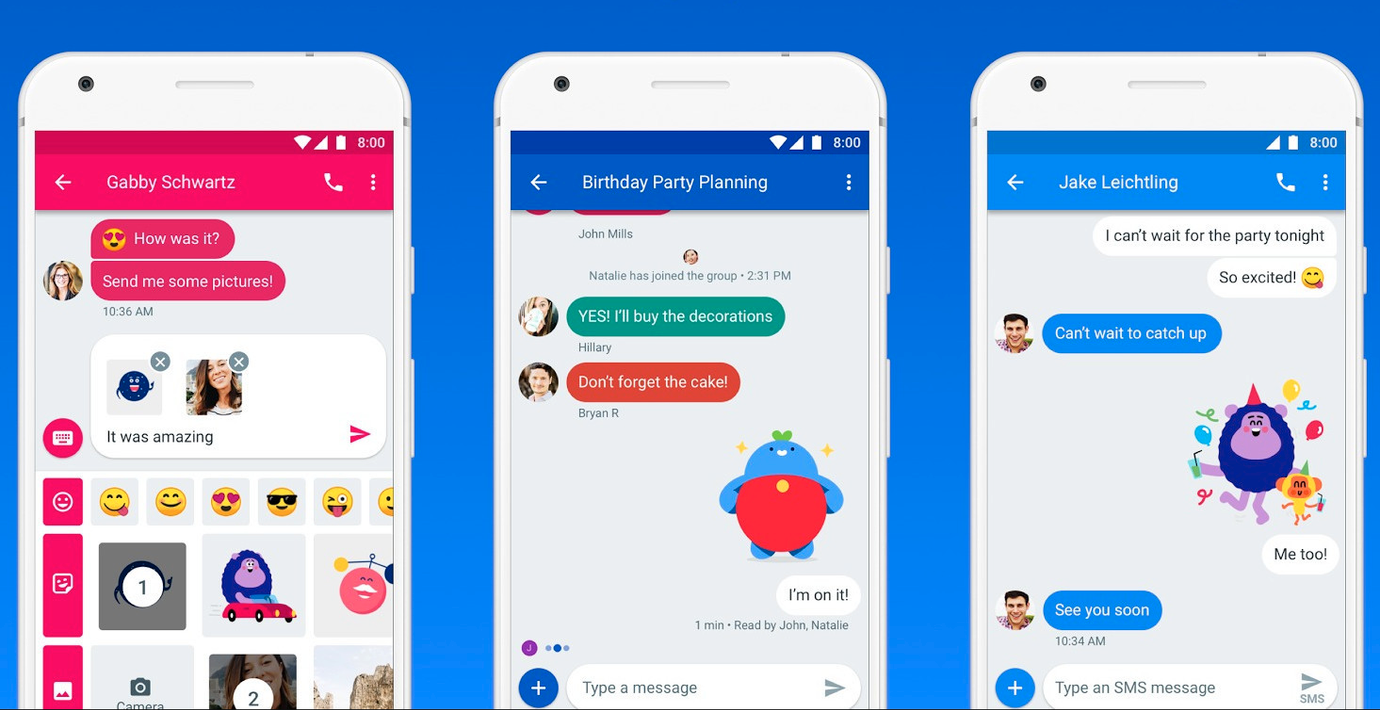
Google tycks förse RCS med end-to-end-kryptering
Googles egen meddelande-app för Android tycks vara på väg att få stöd för end-to-end-kryptering av RCS-meddelanden. RCS brukar beskrivas som en modern arvtagare till SMS och MMS, och har flera av de funktioner som en modern meddelandetjänst förväntas ha. End-to-end-kryptering har däremot saknats.
Det är i en testversion av appen ämnad för Googles anställda som krypteringen nämns, skriver sajten Neowin.
Det är oklart vilka krav som ställs på hårdvara och operatörer för att krypteringen ska kunna användas.
RCS (Rich Communication Services)
Wikipedia (en)
Rich Communication Services (RCS) is a communication protocol between mobile telephone carriers and between phone and carrier, aiming at replacing SMS messages with a text-message system that is richer, provides phonebook polling (for service discovery), and can transmit in-call multimedia. It is part of broader IP Multimedia Subsystem.
It is also marketed as Advanced Messaging, Chat, joyn, SMSoIP, Message+, and SMS+.
End-to-end-kryptering
Wikipedia (en)
End-to-end encryption (E2EE) is a system of communication where only the communicating users can read the messages. In principle, it prevents potential eavesdroppers – including telecom providers, Internet providers, and even the provider of the communication service – from being able to access the cryptographic keys needed to decrypt the conversation.In many messaging systems, including email and many chat networks, messages pass through intermediaries and are stored by a third party, from which they are retrieved by the recipient. Even if the messages are encrypted, they are typically only encrypted 'in transit', and are thus accessible by the service provider, regardless of whether server-side disk encryption is used. This allows the third party to provide search and other features, or to scan for illegal and unacceptable content, but also means they can be read and misused by anyone who has access to the stored messages on the third party system, whether this is by design or via a backdoor. This can be seen as a concern in many cases where privacy is very important, such as persons living under repressive governments, whistleblowing, mass surveillance, businesses whose reputation depends on its ability to protect third party data, negotiations and communications that are important enough to have a risk of targeted 'hacking', and where sensitive subjects such as health, and information about minors are involved.
End-to-end encryption is intended to prevent data being read or secretly modified, other than by the true sender and recipient(s). The messages are encrypted by the sender but the third party does not have a means to decrypt them, and stores them encrypted. The recipients retrieve the encrypted data and decrypts it themselves.
Because no third parties can decipher the data being communicated or stored, for example, companies that use end-to-end encryption are unable to hand over texts of their customers' messages to the authorities.
Omni är politiskt obundna och oberoende. Vi strävar efter att ge fler perspektiv på nyheterna. Har du frågor eller synpunkter kring vår rapportering? Kontakta redaktionen